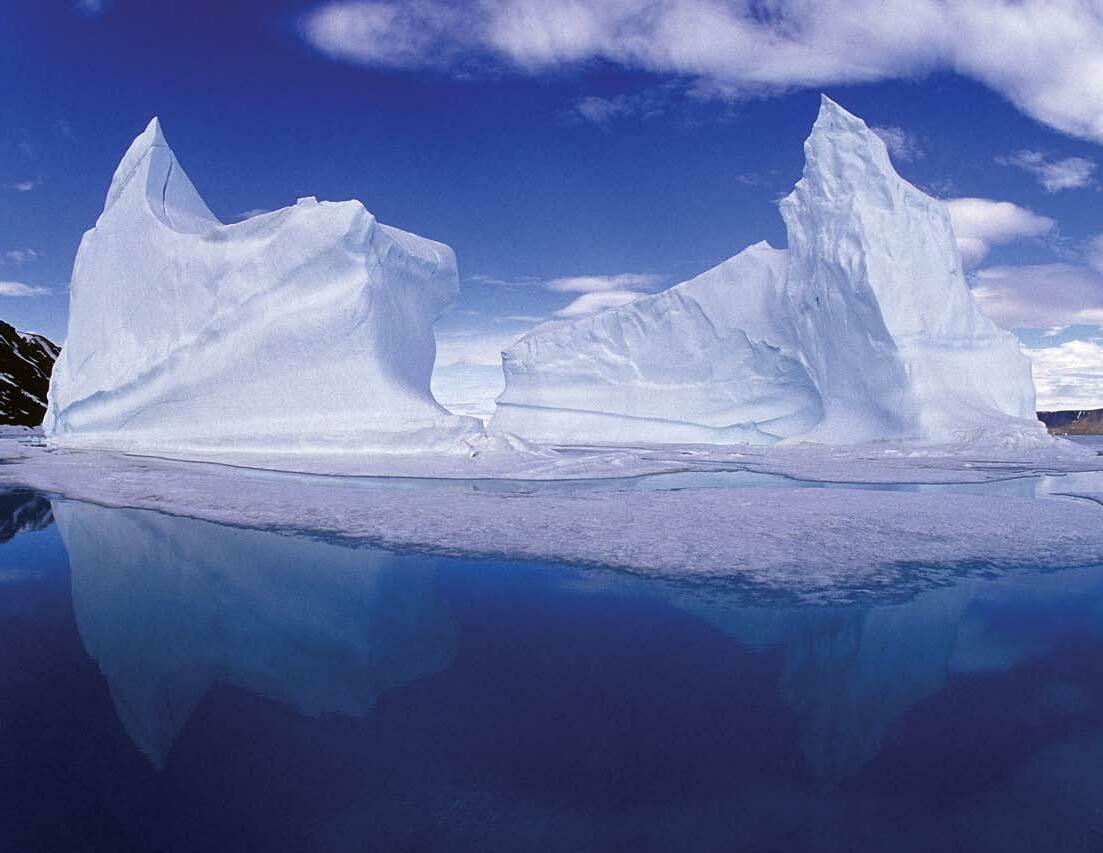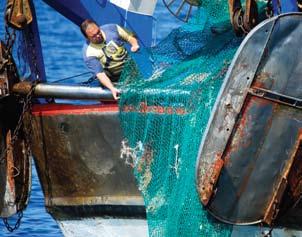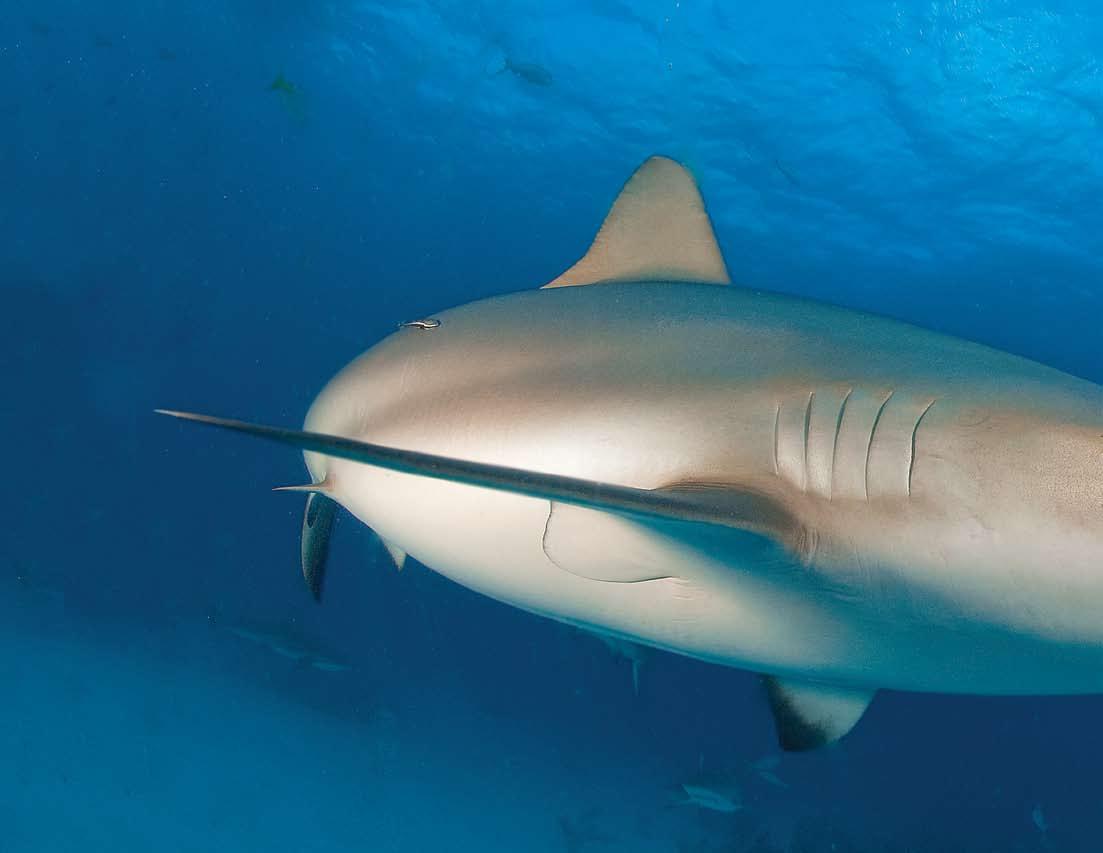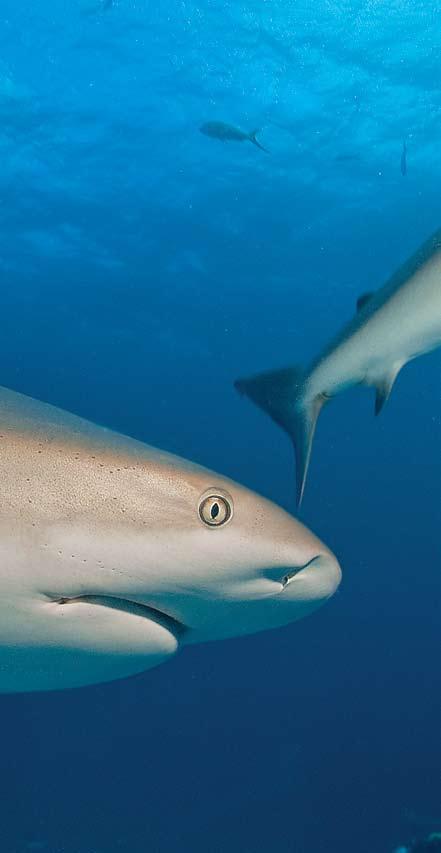
5 minute read
Oceana Approach
OCEANS VERGING ON COLLAPSE
The oceans are vast, but they are not immune to human influence. We have already altered or destroyed many marine ecosystems and driven million-year-old species to the brink of extinction. According to a study published in Science, less than four percent of the oceans remains unaffected by human activity.


© OCEANA | Keith Ellenbogen

WE ARE TAKING TOO MANY FISH OUT OF THE WATER
In the last few decades, commercial fishing has evolved into a high-tech, heavily subsidized industry that uses cutting-edge electronics, computer systems, huge amounts of fuel and miles of gear to find and catch more fish in remote places formerly out of bounds to fishermen.
Scientists report that commercial catches of 29 percent of wild populations of seafood have already collapsed as a result of this high-intensity fishing. The U.N. Food and Agricultural Organization says that at least 75 percent of seafood species are overexploited, fully exploited or recovering from depletion. Scientists have also projected that if we keep fishing at the current rate, our entire wild seafood supply could collapse before the middle of this century. At the same time, marine predators like dolphins and sharks suffer population losses when they can’t find food to eat. Mediterranean bottlenose dolphins have already declined significantly, in part due to overfishing of sardines and anchovies.
Wasteful fishing practices that include diagonal-mesh driftnets, longlines with outdated hooks and bottom trawls are ruining ocean ecosystems by indiscriminately killing fish and other wildlife, including seabirds and marine mammals. Each year, more than 16 billion pounds of untargeted fish are thrown overboard thanks to wasteful fishing techniques. Bottom trawls drag heavily weighted
© iStock
nets along the ocean floor in search of fish or crustaceans in a practice akin to clearcutting a forest in order to catch a rabbit. Centuries-old habitats such as coral gardens are destroyed in an instant by bottom trawls, pulverized into barren plains.
Meanwhile, offshore fish farming, rather than taking the pressure off wild seafood species, results in increased overfishing to feed the farmed fish as well as the despoiling of seafloor habitat. Tons of concentrated fish waste dropped from open-water salmon pens blankets the ocean bottom, snuffing out oxygen and life.
Since time immemorial, the oceans have absorbed vast amounts of carbon dioxide in a system that keeps our planet’s atmosphere in balance. Now, thanks to the burning of fossil fuels, the oceans are becoming saturated with carbon. Carbon dioxide is changing the very chemistry of the oceans, causing them to become more acidic and jeopardizing the future of coral reefs and organisms that produce shells. The oceans are also warming, thus increasing the intensity of storms, causing sea levels to rise and disrupting ecosystems and ocean circulation.
In addition, we are poisoning the oceans with mercury, a toxic pollutant emitted by land-based industrial plants. This mercury finds its way back into our food chain via our seafood with potentially serious consequences. According to a scientist with the U.S. Environmental Protection Agency (EPA), one in ten American women has enough mercury in her blood to pose a risk of neurological damage to her developing baby.
Our oceans and fish play a vital role in the world’s economy. Over one billion people around the world depend on the oceans for a primary source of protein, many of them poor. The livelihoods of close to 200 million people are tied to the oceans.
The oceans are an invaluable resource for humankind – one that we can’t afford to squander.
WE ARE PUTTING TOO MANY POLLUTANTS IN THE WATER
© OCEANA | Juan Cuetos
WE ARE PUTTING AT RISK JOBS AND FOOD FOR MILLIONS OF PEOPLE
OPPOSITE PAGE: Icebergs, Baffin Island, Nunavut. ABOVE LEFT: Tuna cage and boat, Balearic Islands, Spain. Oceana MarViva Med Mediterranean Expedition. May 2008. CENTER: Pollution adds carbon dioxide to the oceans. RIGHT: Fisherman at the stern of the trawler Nuevo Panchita rolling up the nets with uprooted gorgonians after fishing illegally less than six miles from the coast. Huelva, Spain. Oceana Ranger Mediterranean Expedition. September 2007.
THE GOOD NEWS
SAVING THE OCEANS IS POSSIBLE IN OUR LIFETIMES.


Many of the most serious threats to the oceans can be addressed with solutions that already exist. New technology has made many kinds of pollution preventable; mercury-cell chlorine plants eliminate mercury releases entirely by shifting to newer membrane-cell technology. Gear modifications allow commercial fishermen to avoid catching untargeted species; thousands of endangered sea turtles are saved each year when fishermen equip their nets with turtle excluder devices. Changes in fishing practices can protect coral gardens; restricting bottom trawling in small areas of dense coral growth can preserve invaluable marine life without compromising the fishing industry’s profits. Reducing carbon dioxide emissions is possible through renewable energy such as wind power.
THE ECONOMICS ARE WITH US
Unsustainable fishing is fueled by massive government handouts to the commercial fishing industry. The global fishing fleet is capable of catching many more fish than scientists think can sustainably be taken from the ocean. Scientists estimate that global fishing capacity may be as much as two and a half times the sustainable level. As a result, the global fish catch has declined since the late 1980s despite intensified efforts. The fishing industry receives $20 billion in harmful government subsidies annually, a figure which represents close to one-fourth of the total dockside value of the global fish catch. Reckless, unsustainable industrial fishing does not make economic sense.
In the U.S. alone, recreational and commercial fisheries supply over two million jobs. On top of that, coastal tourism provides 28.3 million jobs and generates $54 billion in goods and services annually. Ocean-based renewable energy such as offshore wind will generate economic growth.
WE HAVE SUPPORTERS AND ALLIES
Oceana is not alone in this fight. We have 300,000 e-activists and supporters in over 150 countries. We are allied with conservation organizations and foundations, farsighted commercial and recreational fishermen, indigenous peoples, seafood consumers, scuba divers, sailors and ocean enthusiasts of all stripes. There is potential to build even more broad support for initiatives to protect and restore ocean ecosystems.








